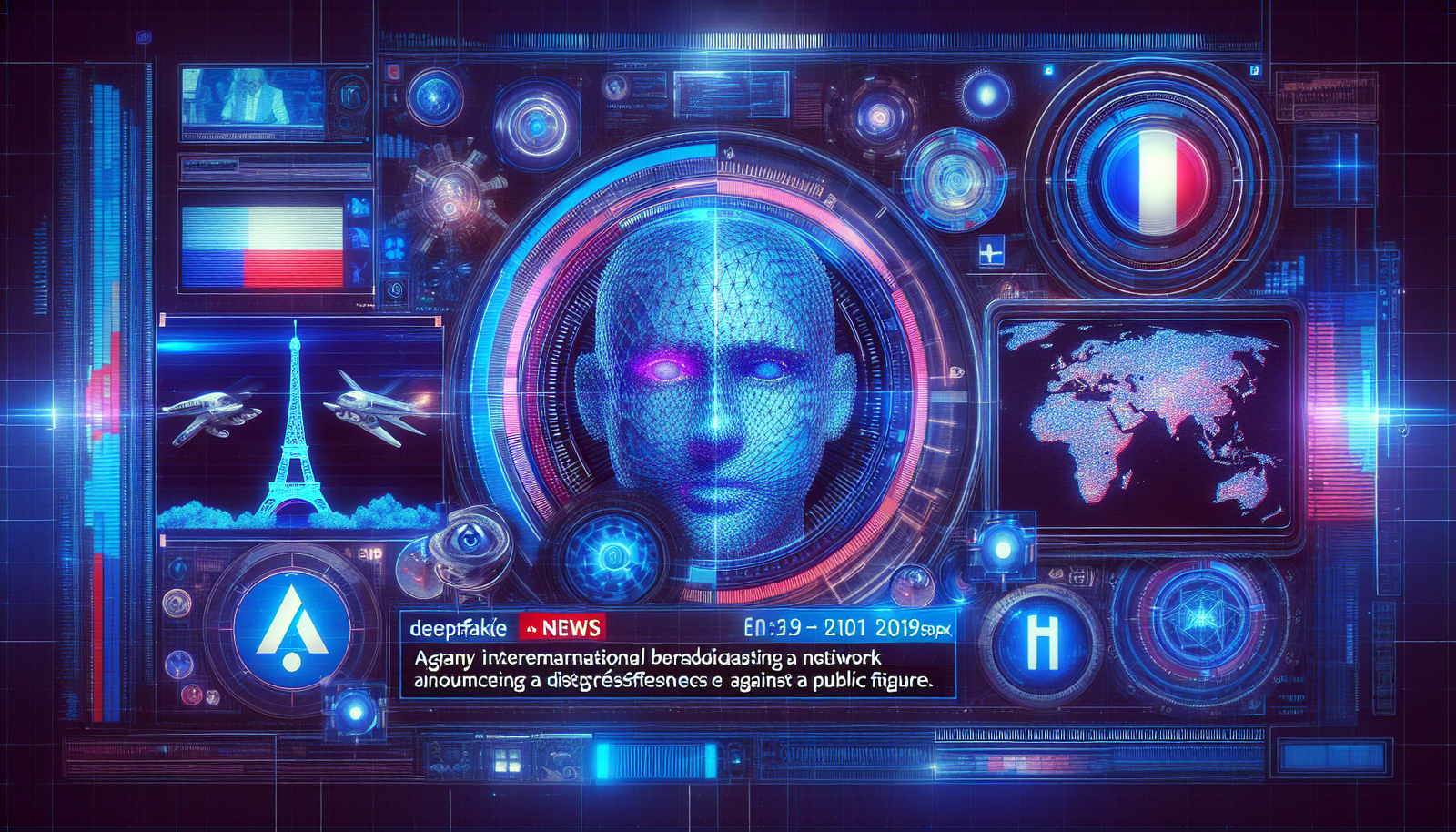- France 24 is facing a insidious manipulation. A pro-Russian deepfake is spreading alarming allegations about an alleged assassination attempt on Emmanuel Macron, the French president.
- This disinformation raises major geopolitical stakes. By compromising the credibility of the media, this phenomenon highlights the devastating impact of manipulation technologies on public opinion.
- Vigilance becomes imperative in the face of this new threat. Understanding the ramifications of this rumor is essential to thwarting destabilization attempts orchestrated by malicious actors.
A fake video that spreads panic
A doctored video, referred to as a deepfake, circulated on social media, claiming to relay information from France 24 announcing an assassination attempt against President Emmanuel Macron in Ukraine. Originating from pro-Russian communication channels, this manipulation has generated a strong uproar within political and media spheres. The television channel quickly reacted, denouncing these false allegations.
The details of the deepfake
This distorted video used modified clips from a France 24 news broadcast. In it, a fake journalist allegedly claimed that the French president was the target of an assassination plot. Social media networks spread this information, thus fueling a considerable misinformation campaign. Rumors gained momentum, prompting the Ministry of Foreign Affairs to issue a statement.
A sophisticated weapon of disinformation
This case illustrates the increasing use of advanced technologies, such as artificial intelligence, in disinformation. The goal appears to be the destabilization of French institutions and the spreading of fear among the population. Deepfakes are becoming a formidable tool in the hands of propagandists, allowing for the construction of misleading narratives with apparent credibility.
France 24 defends itself
In the face of this alarming situation, France 24 has made immediate efforts to restore the truth. A clearly worded denial was released, emphasizing that the video in question did not originate from its editorial teams. This approach aims not only to preserve the integrity of the channel but also to inform the public about the dangers related to information manipulation.
Increased vigilance in the media landscape
The Quai d’Orsay is keeping a close eye on these acts of destabilization. French authorities believe that this maneuver constitutes a coordinated attempt at influence by entities linked to Moscow. Public trust in the media and leaders is undermined by this misinformation, which emphasizes the importance of increased vigilance against false information.
International reactions and implications
The spread of this deepfake has elicited reactions beyond French borders. Cybersecurity specialists and international observers are alerting on the rise of this type of disinformation. Governments and media worldwide must redouble their efforts to combat these digital manipulations, which harm democracy and truth.
An opportunity for regulation
This case highlights the urgent need to establish regulations concerning the use of artificial intelligence technologies and deepfakes. Initiatives are beginning to emerge to counter this phenomenon. Experts are calling for the creation of laws and systems capable of minimizing the negative impact on public discourse and protecting individuals against these offenses.
Similar cases and state of disinformation
Other recent events show that this is not an isolated case. In today’s world, disinformation is pervasive, creating a climate of distrust. Misleading content, such as those related to public figures, rapidly crosses borders, influencing public opinions and deteriorating the global informational landscape. It is imperative to remain vigilant in the face of these abuses.
Trends in artificial intelligence and the future
The advances in artificial intelligence offer countless opportunities while posing ethical and practical challenges. Commons, appropriate regulation could address these issues. Discussions around deepfakes and their regulation should be prioritized in order to protect society from destabilizing influences that could arise. To learn more about the impact of these technologies, visit this page on the advances of AI.
FAQ about the France 24 deepfake and the fictional assassination attempt on Emmanuel Macron
What is a deepfake and how does it apply to France 24?
A deepfake is an AI technique that creates misleading videos or audios by manipulating existing images. In this case, a deepfake used clips from France 24 to spread false information regarding an alleged assassination attempt on Emmanuel Macron.
Why was the deepfake video disseminated by pro-Russian media?
This dissemination is part of a disinformation strategy aimed at destabilizing French institutions and influencing public opinion through false news. Pro-Russian media often utilize deepfakes to fuel rumors.
How did France 24 respond to this situation?
France 24 quickly denounced this manipulation and published denials to clarify that the video and the allegations stemming from it were entirely unfounded.
What impact could this rumor have on Emmanuel Macron and France?
Such a rumor can create a climate of fear and distrust, affecting not only Emmanuel Macron’s image but also France’s international relations, particularly in the sensitive context of Ukraine.
What measures can be taken to protect against this type of disinformation?
It is essential to verify information sources, refer to reliable media, and consult fact-checking experts to avoid believing or sharing misleading information.
Where can I find more information about deepfakes and their impact on information?
Articles and studies on disinformation and deepfakes are available on various investigative journalism and media research websites. France 24 and other credible news platforms also highlight these issues.
How do deepfakes affect trust in traditional media?
Deepfakes can erode public trust in traditional media, as people may hesitate to believe what they see or hear. This underscores the importance of media education and increased transparency in journalism.






